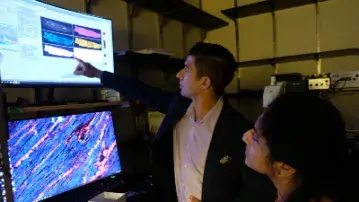Celebrating the people and purpose behind the science! The My Why campaign shares the personal motivations driving Larner researchers at every career stage. Explore stories that reveal their passion, highlight life-saving innovations, and showcase breakthroughs shaping the future of medicine.
